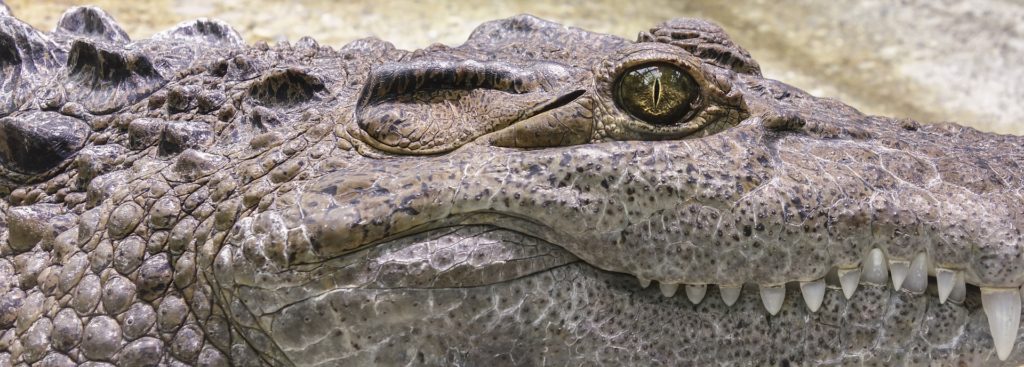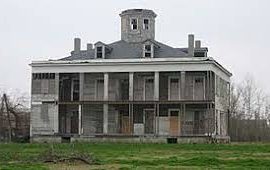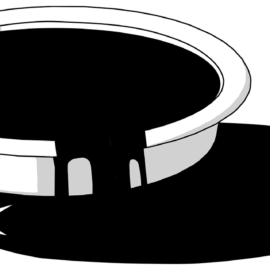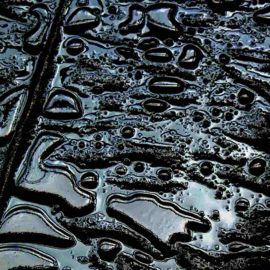
The Chalmette oil pipe rupture caused damage to many alligators and to bring them back to normal their teeth need to be cleaned.
Wildlife rehabilitators are decontaminating dozens of alligators, brushing their pointy teeth and scrubbing their scaly hides after a pipeline rupture dumped 300,000 gallons of diesel fuel into a wetland near Chalmette. Diesel poured into the area Dec. 27 when a severely corroded pipeline broke, according to federal records. Seventy-eight alligators have since been rescued, and 33 of them had been cleaned and released by Friday into the Bayou Sauvage National Wildlife Refuge, about 10 miles from the spill site, the Louisiana Department of Wildlife and Fisheries said. Cleaning a six-foot-long alligator on Thursday required eight people: four holders, two scrubbers, one person with a hose for hot-water rinses and one to change the wash water, said Laura Carver, who became the department’s oil spill coordinator in February 2010, less than three months before the BP oil disaster off Louisiana in the Gulf of Mexico.
nola.com
It is a process and one that I am not sure if I would like to do.
Carver said the effect of December’s diesel spill on wildlife was relatively high compared to most spills in Louisiana. Rehabilitating that many alligators at once “is a new one for us,” Carver said. She said a hard piece of wood “almost like a really old-fashioned mop handle” is used to hold the alligator’s jaw open while its teeth are scrubbed. The teeth cleaning comes toward the end of a series of body washes using gradually smaller concentrations of Dawn dish detergent to remove off the gunk. “They literally get their mouths washed out with soap. But it’s the only thing that works,” Carver said. She said almost all of the spill went into two artificial ponds, and only the smaller pond was completely covered with diesel. The vast majority of spilled diesel has been recovered from the ponds, and contractors for operator Collins Pipeline Co. of Collins, Mississippi, are working on plans for the contaminated soil, spokesperson Gregory Langley of the state Department of Environmental Quality said Friday.
The pipeline was over 40 years old and there are others in the same age range and so this is likely occurrence in the near future.
Collins Pipeline, a subsidiary of New Jersey-Based PBF Energy, had known about corrosion on the outside of the pipe at the site of the spill since an October 2020 inspection, according to federal records. It delayed repairs, however, after a second inspection showed the corrosion was not bad enough to need immediate attention. At the time of the spill the company was awaiting permits for the work and planned to start it later this month, the records show. The Gulf Coast is in constant danger of spills from corroded oil and gas pipelines, said Dustin Renaud, spokesman for the environmental nonprofit Healthy Gulf. “It’s time we take a systematic approach to reviewing the vulnerability of our oil and gas infrastructure, and start the process of repairing and removing these rust buckets,” he said.
There were far more than the alligators affected by the spill and some protections are in place to keep more birds from the scene.
The spilled fuel killed about 2,300 fish in two pits from which dirt was once excavated for construction. Most were minnows and bait fish, Carver said, along with some shad, gar, sunfish and small bass. Noise-making cannons have been set up in the area to keep birds and animals away, the federal records show. Most of the coated alligators were brought in within two weeks of the spill, but seven were rescued this week, Carver said. More than 100 animals found dead included 39 snakes, 32 birds and nine frogs. Although 23 live birds were found, only three survived the combination of diesel and cold weather, Carver said. She said two have been released and a third is still being treated. The department euthanized three alligators more than 8 feet long, Carver said. They were in deep diesel and “in rough shape,” she said. Birds and smaller reptiles get their mouths swabbed out, often as they’re captured or when they’re brought in, Carver said.
There was some delay in reporting the spill.
Federal records show that Collins notified authorities the night of Dec. 27, within an hour of going to the site and almost nine hours after shutting down the pipeline because meters indicated a likely break. Langley, the Department of Environmental Quality spokesperson, had no comment about whether the agency considers that time lapse a problem. He said the agency’s inquiry is continuing. “Once the investigation is complete, the department’s enforcement division may be asked whether any environmental regulations were broken,” he said. Langley said the Louisiana Oil Spill Coordinator’s Office is leading the state investigation. The office did not immediately return a call for comment Friday.
Once cleaned, the alligators are released into Bayou Sauvage.
The alligators released in the Bayou Sauvage refuge include 11 babies less than 18 inches long. Gators have to wait for their cleaning until all polluted food has made it through their digestive systems, Carver said. Though the babies, all found near each other, shared a kiddie pool, each of the others has its own kiddie pool within a plywood enclosure. “We’ve found that cyclone fencing really doesn’t work because the larger gators really like to climb,” Carver said.
The cleaning continues and the threat of repeating this exercise remains as long as pipelines remain.



